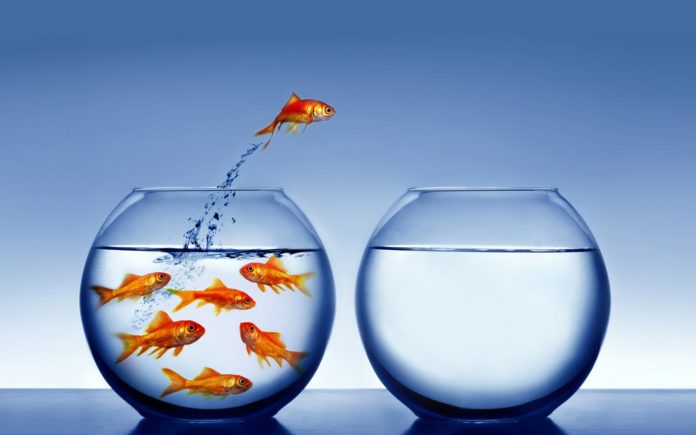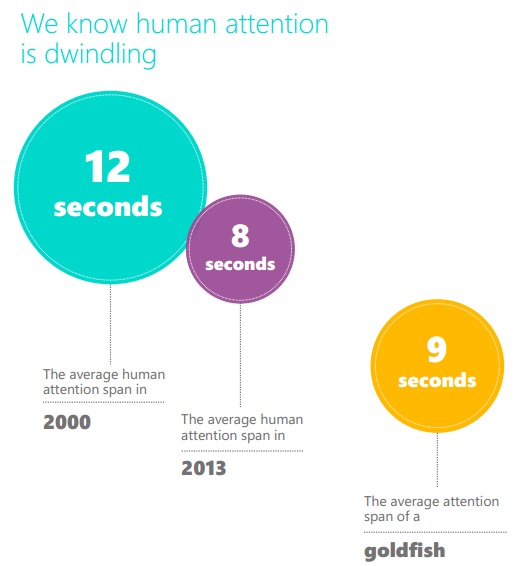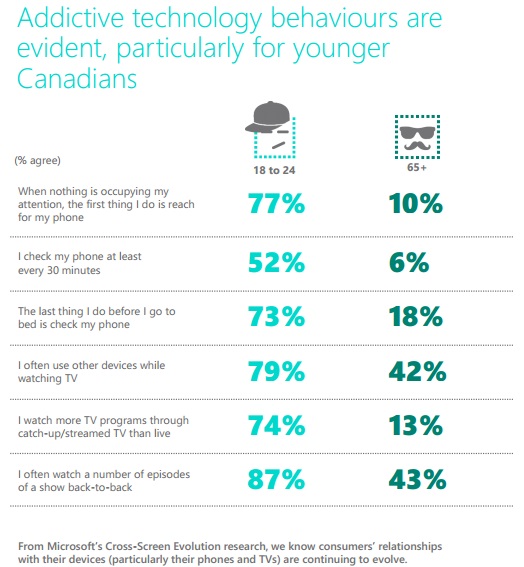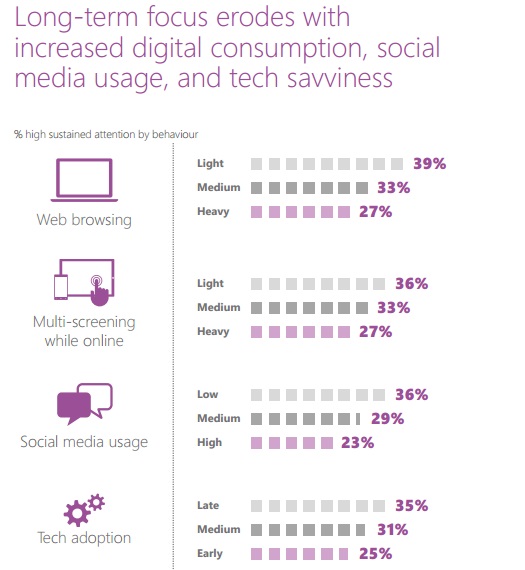
Microsoft have conducted a research paper which has startlingly presented the human attention span as now less than that of a goldfish. The average span in 2000 was 12 seconds, in 2013 it was down to 8 seconds. A goldfish holds the title of 9 seconds. So what happened to us?
According to Microsoft Canada and their research department, the use of mobile devices has made our world move quickly, to the point where the younger generations are fearful of missing out. With smartphones permanently in our back pocket, if not in front of our face as we walk, drive, sit with friends while texting them rather than have social interactions; the effect on our attention span is now alarmingly notable. Goldfish? I’d like to remember the last time I went past my living room window, thanks.
The effects that IT are having on the human body are rarely detailed and acknowledged. Used in length they can interfere with life in nearly every aspect. Sleep patterns much needed to maintain a healthy lifestyle, are altered; social interactions, whereby we have replaced emotion with an emoji; and simple day-to-day safety, such as driving a car without texting, or crossing a road without lifting your eyes from the smartphone to see into oncoming traffic.
Reading on a bright screen has been documented on several occasions, including the National Academy of Sciences in 2014. The journal publication suggested that “screen time before sleep can be detrimental,” linking it to health problems such as obesity, diabetes, and cardiovascular disease. “Chronic suppression of melatonin has also been associated with increased risk of certain cancers.”[1]
Our bodies are adapting to the new technology around us, for good or for worse. According to Microsoft, there is a positive outcome for our lack of attention in a world with ever increasing cases of ADHD and ADD. Here’s what Microsoft have to say about their outcomes of the study:
“No matter what environment humans are in (be it the plains of Africa or a crowded street in New York), survival depends on being able to focus on what’s important — generally what’s moving. That skill hasn’t changed, it’s just moved online.
Today, multi-screening is a given, so it’s reassuring to know that multiple screens don’t reduce the (potential) impact of advertising. Since consumers turn to their secondary screens to fill in those in between moments when they might otherwise drop off completely, they’re more engaged overall and already primed for immersive experiences.
While these results certainly held some surprises for us, they are all good surprises. Rest assured, digital won’t be the cause of our (at least attentional) downfall.”[2]
Attention spans are dwindling, but it’s good for the IT based promotions for business. The shorter our attention spans, the more we try to cram in from our bright white screens. It’s also good news for those in mass marketing, at least.
For our species? You decide.
[1] Beres, D. (2014) Reading On A Screen Before Bed Might Be Killing You. Retrieved from (2015) http://www.huffingtonpost.com/2014/12/23/reading-before-bed_n_6372828.html
[2] Microsoft Canada (2015) Attention Spans. Retrieved from (2015) http://advertising.microsoft.com/en/WWDocs/User/display/cl/researchreport/31966/en/microsoft-attention-spans-research-report.pdf







